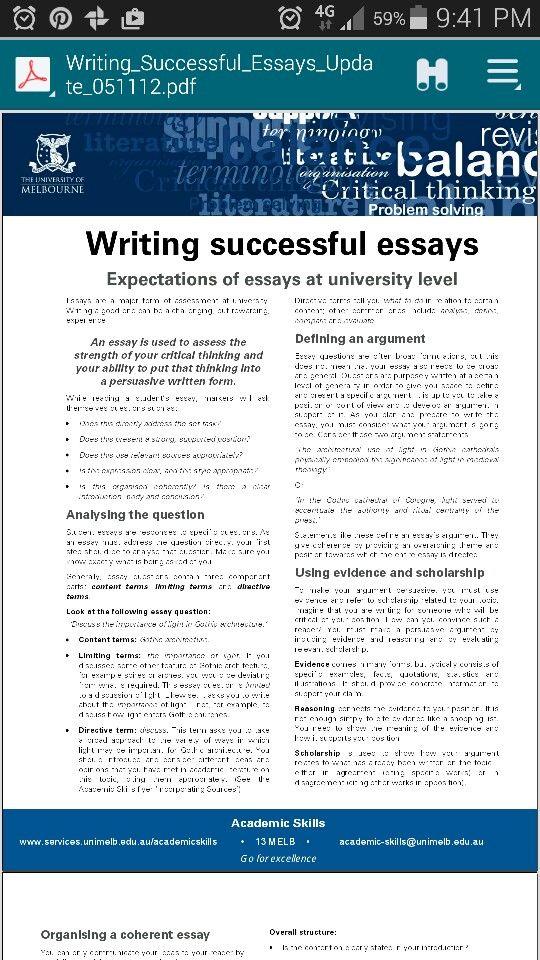In order to write a critical thinking essay, you must first understand the topic you are writing about. Choose a topic you are familiar with, and one that you can develop strong arguments for. The main argument of a critical thinking essay is the thesis statement, which anchors the rest of the paper. Your thesis statement should present a strong point of view, backed by strong arguments. To help you choose a topic, consider the following steps:
Work outline
When writing a critical thinking essay, you should create a work outline. It is important to plan out your essay’s structure ahead of time, as it will help you stay focused. A good outline should include the main points of the essay, and should also consider the structure requirements of the paper. Most critical analyses consist of an introduction, two to four body paragraphs, and a conclusion. The number of paragraphs depends on the length of the essay, so keep this in mind when creating your outline.
The structure of a critical thinking essay is similar to that of other types of essays. You should include an introduction to present the topic and provide background information. Include arguments and details about the issue, and explain the methodology you used to come to that conclusion. Ensure that each paragraph is related to the main idea. After the introduction, organize the body paragraphs to make sure they are relevant to the thesis statement. You can include as many details as you want, but it is best to stick to the basic structure.
Thesis statement
Thesis statements for critical thinking essays should be argued and argumentative. You cannot simply state a fact and expect it to be accepted. The reader will not be able to appreciate your critical thinking skills if you merely state a fact and then try to defend your opinion with evidence. A good thesis statement should take a stand and justify further discussion. Ultimately, the essay should present an opinion on the topic.
As with any other critical essay, the thesis statement should begin with a question, which can change as you investigate the topic. For example, if you have been studying capital punishment as a deterrent for criminals, you may find studies that question this claim. As you read and research, you might change your mind, and you may end up changing your opinion altogether. The key here is to stay open to all views, because you’ll never know what the audience will think.
Evaluation of sources of information
The evaluation of sources of information in a critical thinking paper is a critical step in the writing process. Students must make a thorough review of the sources of information they have used before deciding whether to trust them or not. Common criteria for evaluating sources include purpose, authority, credibility, accuracy, timeliness, and objectivity. To avoid mental overload, evaluate sources for these qualities. Once you’ve completed your research, evaluate your sources to determine whether they meet your criteria for accuracy, objectivity, and bias.
When evaluating the validity and reliability of information in a critical thinking essay, it’s important to separate fact from opinion. While facts can be verified, opinions develop from that interpretation. To properly evaluate a source, make sure the data are well-researched, backed by evidence, and free of errors or omissions. Also, determine whether the source is promoting a particular political, religious, or social agenda. Advertising content should be labeled as such.
Choosing a topic
The process of writing a critical thinking essay begins with the selection of a topic. After choosing the topic, you should conduct a good deal of research to gain the knowledge necessary to write a great critical essay. Once you’ve chosen a topic, you’ll need to gather enough information to write a few body paragraphs. Your introduction should briefly describe the topic and your thesis statement. This will act as the hook to grab the reader’s attention.
While some students choose controversial topics, controversial subjects often lend themselves to a critical analysis. Famous literature or controversial articles are both great choices for critical essays. These topics will require you to think outside the box and develop solid arguments. You may need to explore some books and even consult professors to come up with a topic. The more controversial the topic, the more books and research you’ll need. A good critical thinking essay topic will spark interest and generate a strong argument.

